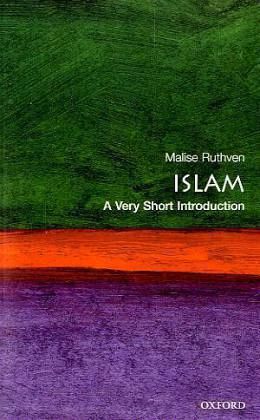Nicht lieferbar

Islam
A Very Short Introduction
Versandkostenfrei!
Nicht lieferbar
Weitere Ausgaben:
Islam features widely in the news, often in its most militant versions, but few people in the non-Muslim world really understand the nature of Islam. Malise Ruthven's Very Short Introduction contains essential insights into issues such as why Islam has such major divisions between movements such as the Shi'ites, the Sunnis, and the Wahhabis, and the central importance of the Shar'ia (Islamic law) in Islamic life. It also offers fresh perspectives on contemporary questions: Why is the greatest 'Jihad' (holy war) now against the enemies of Islam, rather than the struggle against evil? Can women ...
Islam features widely in the news, often in its most militant versions, but few people in the non-Muslim world really understand the nature of Islam. Malise Ruthven's Very Short Introduction contains essential insights into issues such as why Islam has such major divisions between movements such as the Shi'ites, the Sunnis, and the Wahhabis, and the central importance of the Shar'ia (Islamic law) in Islamic life. It also offers fresh perspectives on contemporary questions: Why is the greatest 'Jihad' (holy war) now against the enemies of Islam, rather than the struggle against evil? Can women find fulfilment in Islamic societies? How must Islam adapt as it confronts the modern world?
Table of contents:
1. Islam, Muslims, and Islamism; 2. The Quran and the Prophet; 3. Divinity Unicity; 4. The Shar'ia and its Consequences; 5. Women and Family; 6. The Two Jihads; Appendix: The Five Pillars of Islam; Citations and Further Reading; Index
Malise Ruthven's Very Short Introduction contains essential insights into issues such as why Islam has such major divisions between movements such as the Shi'ites, the Sunnis, and the Wahhabis, and the central importance of the Shar'ia (Islamic law) in Islamic life. It also offers fresh perspectives on contemporary questions: Why is the greatest 'Jihad' (holy way) now against the enemies of Islam, rather than the struggle against evil? Can women find fulfilment in Islamic societies? How must Islam adapt as it confronts the modern world?
Table of contents:
1. Islam, Muslims, and Islamism; 2. The Quran and the Prophet; 3. Divinity Unicity; 4. The Shar'ia and its Consequences; 5. Women and Family; 6. The Two Jihads; Appendix: The Five Pillars of Islam; Citations and Further Reading; Index
Malise Ruthven's Very Short Introduction contains essential insights into issues such as why Islam has such major divisions between movements such as the Shi'ites, the Sunnis, and the Wahhabis, and the central importance of the Shar'ia (Islamic law) in Islamic life. It also offers fresh perspectives on contemporary questions: Why is the greatest 'Jihad' (holy way) now against the enemies of Islam, rather than the struggle against evil? Can women find fulfilment in Islamic societies? How must Islam adapt as it confronts the modern world?




